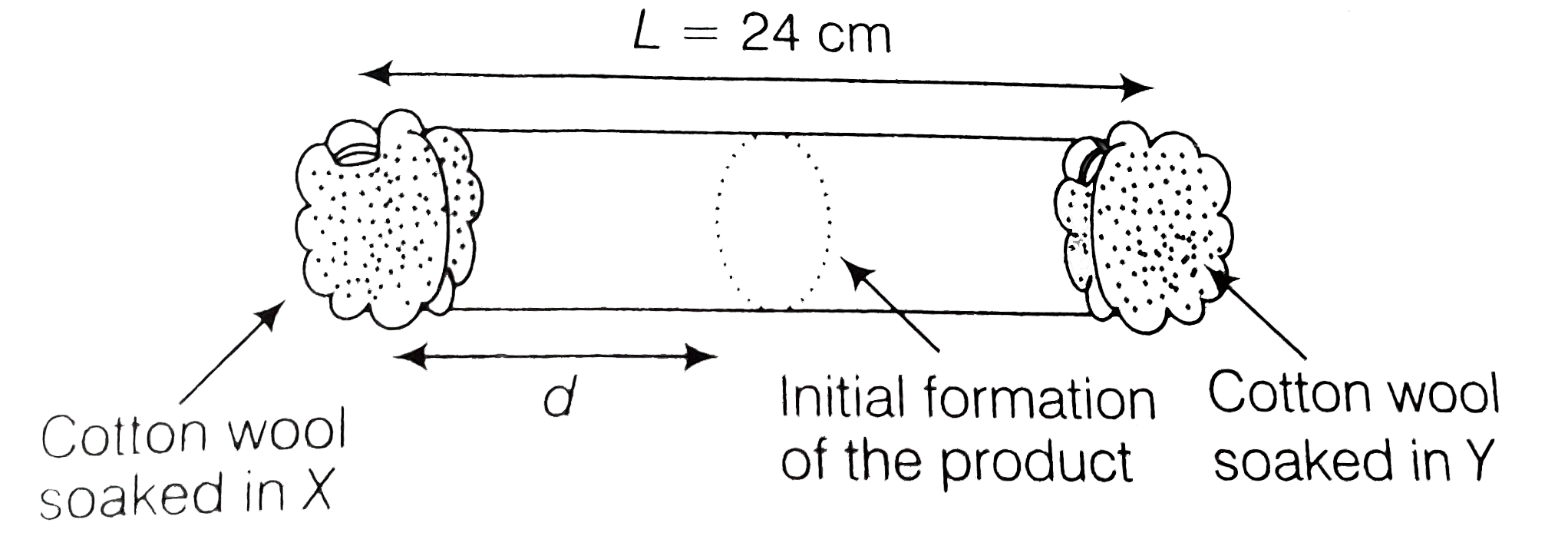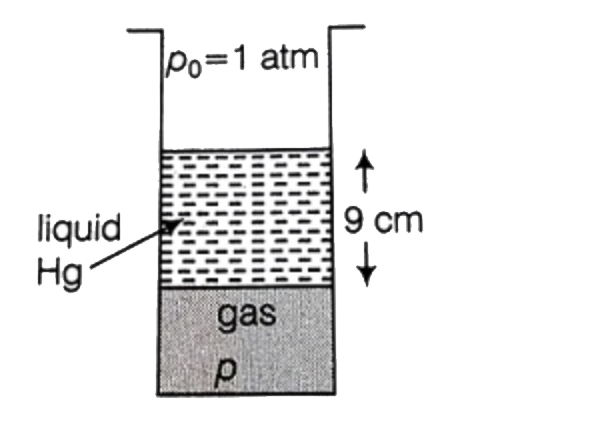At room temperature, ammonia gas at 1atm pressure and hydrogen chloride gas at Patm pressure are allowed to effuse through identical pin holes from opposite ends of a glass tube of 1m length and of uniform cross- section. Ammonium chloride is first formed at a distance of 60cm from the end through which HCl gas is sent in. What is the value of P?
The correct Answer is:( 2.20 atm )
Rate of effusion (r)∝p√M
⇒r(NH3)r(HCl)=1√17×√36.5P⇒4060=1P√36.517⇒p=32√36.517=2.20 atm
Similar Questions
At room temperature, ammonia gas at 1atm pressure and hydrogen chloride gas at Patm pressure are allowed to effuse through identical pin holes from opposite ends of a glass tube of 1m length and of uniform cross- section. Ammonium chloride is first formed at a distance of 60cm from the end through which HCl gas is sent in. What is the value of P?
View SolutionAt room temperature, ammonia gas at 1 atm pressure and HCl gas at pressure P atm are allowed to effuse through idential pin holes from opposite ends of a glass tube of 1 meter length and of uniform area of cross-section. NH4Cl is first formed at a distance of 60 cm from the end through which HCl gas was sent in. Calculate the value of P.
View Solution
Knowledge Check
X and Y are two volatile liquids with molar weights of 10gmol−1 and 40gmol−1 respectively. Two cotton plugs, one soaked in X and the other soaked in Y, are simultaneously placed at the ends of a tube of length L=24 cm, as shown in the figure.
The tube is filled with an inert gas at 1 atm pressure and a temperature of 300K. Vapours of X and Y react to form a product whichh is first observed at a distance dcm from the plug soaked in X.
Take X and Y to have equal molecular diameters and assume ideal behaviour for the inert gas and two vapours.

The value of d in cm (shown in figure), as estimated from Graham's law, isA8B12C16D20In the given figure, atmospheric pressure p0=1 atm and mercury column length is 9 cm. Pressure p of the gas enclosed in the tube is
 APressure of 67 cm of HgBPressure of 90 cm of HgCPressure of 78 cm of HgDPressure of 85 cm of Hg
APressure of 67 cm of HgBPressure of 90 cm of HgCPressure of 78 cm of HgDPressure of 85 cm of HgAn ideal gas at pressure P and temperature T is enclosed in a vessel of volume V. Some gas leaks through a hole from the vessel and the pressure of the enclosed gas falls to P'. Assume that the temperature of the gas remains constant during the leakage. What is the number of moles of the gas that have leaked ?
AVRT(P+P')B2VRT(P+P')CVRT(P−P')DV2RT(P−P')
At room temperature, NH3 gas at 1 atm and HCl gas at P atm are allowed to effuse through identical pinholes from oppoite ends of a glass tube of 1 metre length and uniform cross section. NH4Cl is first fomed at a distance of 60 cm from the end through whieh, HCI gas is sent in. What is the value of P?
View SolutionThrough the two ends of a glass tube of length 200cm hydrogen chloride gas and ammonia are allowed to enter At what distance ammonium chloride will first appear ? .
View SolutionThough the two ends of a glass tube of length 200 cm, hydrogen chlorine gas and ammonia are allowed to enter. At what distance ammonium chloride will first appear ?
View SolutionTwo gases NO and O2 were introduced at the two ends of a 1m long tube simultaneously ( tube of uniform cross-section) . At what distance from NO gas end , Brown fumes will be seen.
View Solution16 mL of He gas effuses through a pin hole in 4 sec from a container having PHe equal to 1 atm. If same container is filled with CH4 having pressure 2 atm, how much volume (in mL) of CH4 will be leaked through same pin hole in 2 sec?
View Solution
